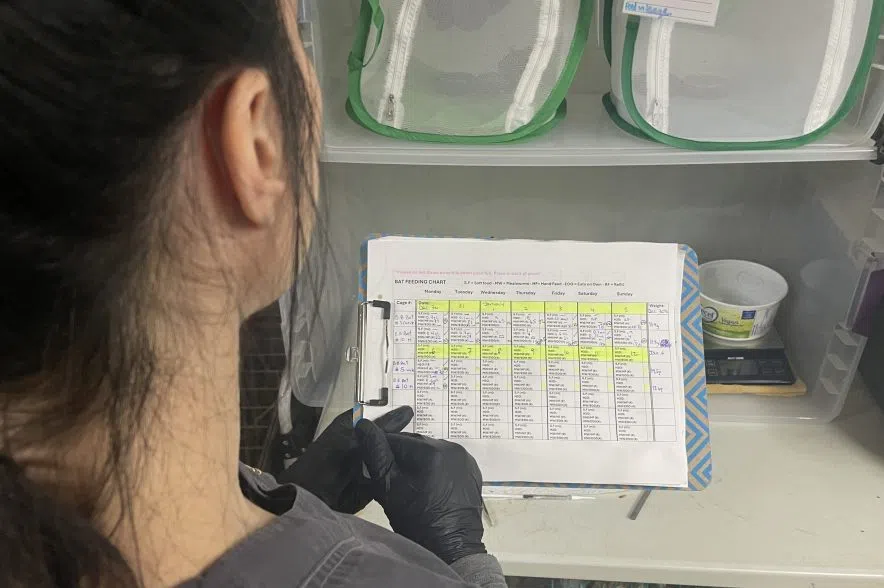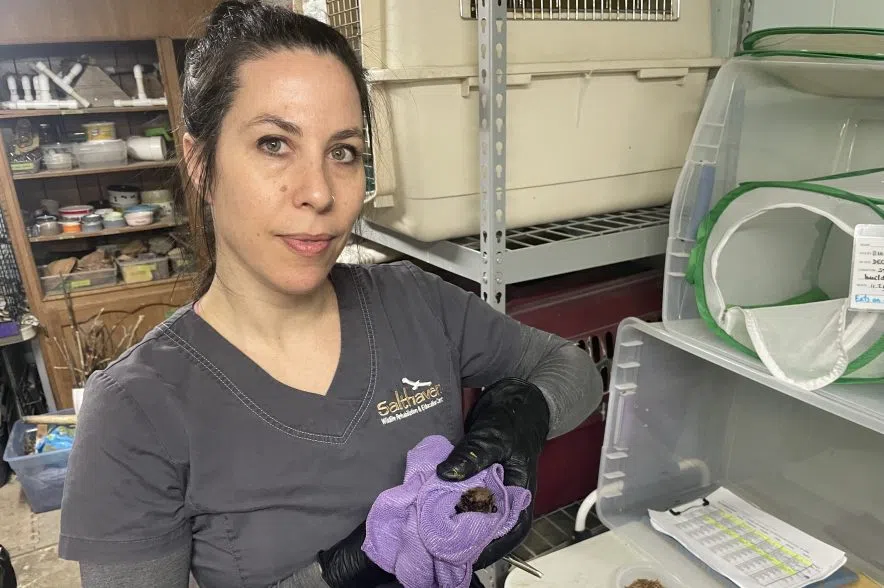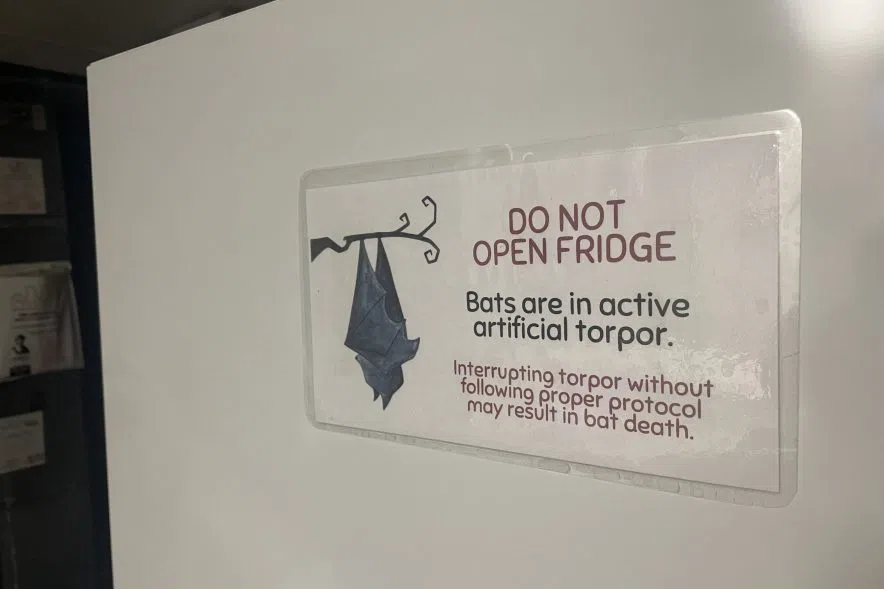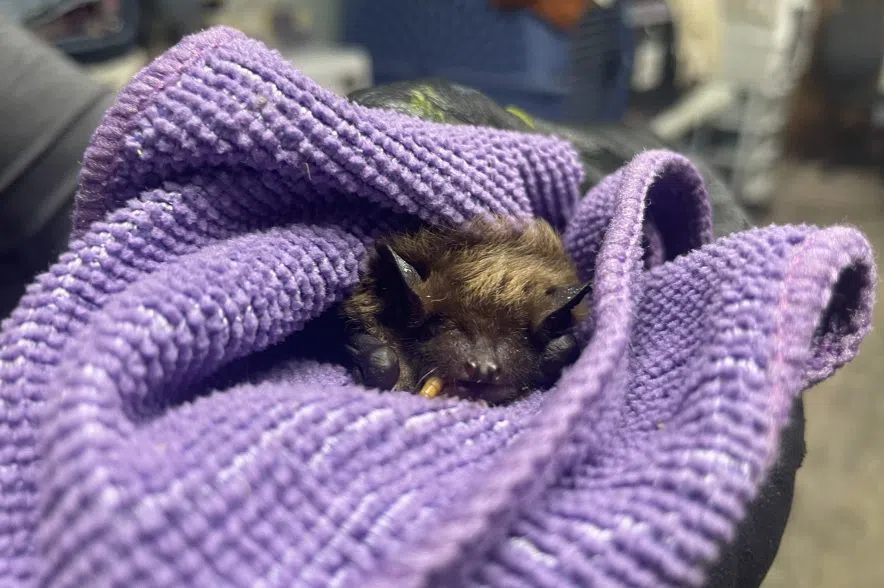Using a pair of tweezers, Natalia Slipak picks up a wriggling mealworm and forks it into the mouth of a hungry big brown bat in her care.
“They are great for our environment, and they’re magnificent creatures,” said the clinic manager at Salthaven West Wildlife Rehabilitation and Education Centre. “I absolutely love them, and I want to see them thrive.”
Slipak, the clinic’s bat specialist, is keeping close watch over two bats to get them to the correct weight and health with hopes of them joining the other bats snoozing for the winter months.
One room over, the rest of the bats are in a deep sleep in a refrigerator in the clinic’s artificial torpor program.
“It’s been huge,” she said. “Honestly, it has been a game changer.”
Slipak was looking for answers to lift some of the workload off of staff and volunteers at the clinic while caring for bats. Many volunteers at the clinic don’t have the rabies vaccine, she said, which is required when feeding and looking after the bats.
“It was basically falling onto three or four people only, and it was a lot of work to feed 30 to 35 bats every day,” she said. “So I thought, ‘we need a solution for this.’”
Listen to Slipak on Behind the Headlines:
With the help of Dr. Mark Brigham and his team from the University of Regina, Slipak was guided to begin an artificial torpor program, which would send the bats into a hibernation-like sleep.
Since the program started up last winter, she said many benefits followed.
“Our bats do better,” Slipak said. “The closest we can get to their natural state and natural behaviours (is) the best for them.
“So I do believe it affects their health in a super positive way.”
Only bats meeting proper health and weight measurements are sent into a state of torpor, according to Slipak. Others remain in care with staff and volunteers until they are well enough.
Bats go into hibernation in the winter when there is a smaller food supply outside, typically between October and May.
While simulating the hibernation-like state, the bats are put into the fridge for one month cycles before being taken out for their check up by Slipak.
“We take them out every month, we weigh them, we check their overall health, we make sure they’re good, feed them, give them water, and then the next morning, they go back in for another month,” said Slipak.
Read more:
- Severe bat infestation drives Spiritwood family out of their home
- Salthaven West wildlife rehab clinic presses on with fundraising efforts
- Vet urges public to protect pets after rabid bat discovery
With many bats sleeping for several cycles at a time, Slipak said more staff and volunteers have been freed up to care for other patients at the clinic.
The fridge simulates the dark and cool places bats typically hibernate, while allowing Slipak to control the temperature and humidity of fridge.
“I wanted to give the bats the best possible chance to be as close to their natural environment as possible, and I love bats,” she said. “I honestly love them. They’re extremely interesting. They’re very helpful.”

Slipak keeps close tabs on each bat within her care, recording information down on a chart. (Gillian Massie/ 980 CJME)
Slipak said there are only big brown bats in care at Salthaven West right now, but the clinic has also had hoary bats and silver-haired bats in its care.
Currently, there are only nine bats in care at the clinic, but at this time last year Slipak said the clinic cared for about 23 bats.
When bats regain their full health, Slipak said they go for a test flight in one of the clinic’s cages before they are set free.
“I think it’s our responsibility to do the best that we can with what we have for them and keep them thriving,” she said.
Salthaven West currently operates out of a home in a residential neighbourhood in Regina, but is fundraising for a new clinic in the RM of Sherwood.
Each year it cares for 1,400 sick and injured wildlife patients that come through its doors.
Editor’s Note: This story has been updated to correct details on the plans for a new clinic.













